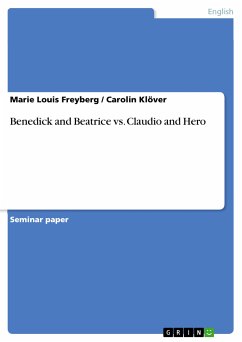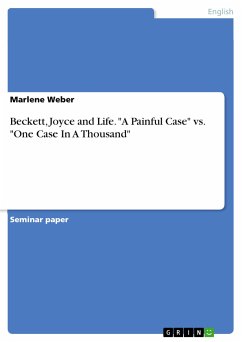Essay from the year 2006 in the subject English Language and Literature Studies - Literature, grade: 2,3, University of Wuppertal (Geistes- und Kulturwissenschaften), course: Literaturwissenschaftlicher Grundkurs, language: English, abstract: Shakespeare's sonnets are a collection of 154 poems. Sonnets 153 and 154 do not belong to the real collection because they are adaptations of classical antic verses about Cupid and therefore distinguished from the first 152 poems because Shakespeare treated the Patriarchal convention of the sonnets in his own way. Shakespeare treats these themes in his own, distinctive fashion—most notably by addressing the poems of love and praise not to a fair woman but instead to a young man; and by including a second subject of passion: a woman of questionable attractiveness and virtue. The sonnets, taken together, are frequently described as a sequence, and this is generally divided into two sections. Shakespeare Sonnets 1-126 focus on a handsome young man and the speaker's emotional friendship with him that could sometimes be interpreted either as asexual or sexual. The nature of this friendship is treated as ideal love as in the Patriarchal convention. Sonnets 127-152 focus on the speaker's relationship with a woman the so-called ‘dark lady’ who is the counterpart of the innocent beautiful maid in Patriarchal sonnets. The lyrical I has an “obsessive”1 sexual love affair with her. I compare sonnets numbered 60 and 144 because the first one deals with the universal concerns of time and its passing and the second took note of the speaker´s seperation of physical love and more down-to-earth sensations connected with it. Moreover it is the only sonnet that explicitly refers to both the Dark Lady and the young man. This sonnets are neatly organized following the structure of the Shakespearean sonnet and its common rhyme scheme abab,cdcd,efef,gg with a iambic pentameter. ---Bibliographie > Hühn, Peter. (1995). Geschichte der englischen Lyrik 1. Francke: Tübingen. > Kerrigan, J. (1986). Introduction In:William Shakespeare. The sonnets and A Lovers´s Complaint. Penguin Classics, Harmondsworth. > Senna, C. (2000). Shakespeare´s Sonnets. Hungry Minds. Inc. New York.
Bitte wählen Sie Ihr Anliegen aus.
Rechnungen
Retourenschein anfordern
Bestellstatus
Storno









